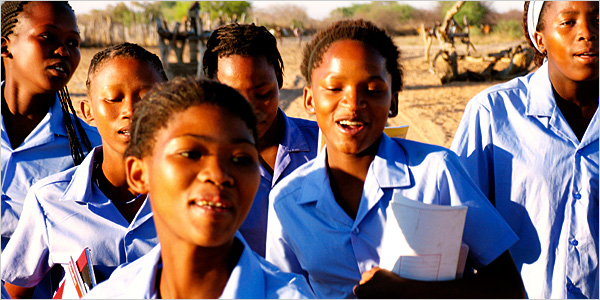We world population – close to 6.6 billion, lives in the driest half of the planet. While 1 billion people do not have access to clean water and almost 2.5 billion do not have access to adequate sanitation.
Due to the consequences of disasters and water-related diseases, 6 to 8 million people die annually in the world, most of them being children – particularly in poor and developing countries, from Africa.
It’s quite hard for children to learn when he or she’s thirsty, sick from drinking dirty water, or has to go to the bathroom, but can’t because there’s no water for cleanup.
While water availability solves a huge share of the problems faced in most areas in Tanzania, it doesn’t seem to contribute fully to educational achievements.
The unavailability of water has forced children to spend their time in domestic chores at the expense of fewer hours spent on educational activities.
Most of families in Tanzania are “forcing” children, especially girls to stay at home helping their mothers to fetch water. It is almost a taboo for boys to gather water for home use.
It has been established that Tanzania is among African countries that records to prove that girls are more affected by water factors in their education systems.
In most rural areas in Tanzania, children and women are forced to walk long distances in strive for safe water. This also means that a lot time is spent fetching water instead of going to school or undertaking any developmental activities.
Since schedules revolve around household chores, the importance of attending school is undermined and preference is placed on water gathering for home use; cooking, washing as well as livestock.
Until 2005, Tanzania had 3012 new water points which were set up mostly from donor funds. The revised water policy (Nawapo – 2002) recognized the importance of locally owned and controlled water supply and sanitation facilities.
Tanzania has then enjoyed an increase in functional water points, with emphasis on urban areas which initially faced serious water supply and sanitation issues.
Similarly, there have also been efforts by private companies like Tigo, which took initiative in digging and donating water boreholes. This initiative was set up to support social amenity provision to Tanzanian citizens.

Availability of safe water is one of the most important elements of a sustainable life, but it is not necessarily the most contributing factor to educational achievement.
Regions with the highest number of functional water points do not necessarily have the highest number of examination pass rates. This might be due to the fact that these water points are unevenly distributed.
The regional water needs vary considerably. An urban region like Dar es Salaam does not have as many livestock keepers as interior parts of Manyara does. This means that functional water points in Dar es Salaam take a big load off children who have to fetch water while in Manyara it only means that grazing the animals is made easy.

Despite the positive impacts of water availability on education, secondary pass rates are seen to differ considerably to primary pass rates.
The higher secondary examination pass rates compared to primary rates could reflect that the struggle for safe water typically faces children at younger ages than older ones. This is because older children are able to manage their time and priorities wisely; they collect more water for later use.
This is probably why primary pass rates for most regions are considerably low than secondary rates. Attending boarding schools is also a contributing factor to high secondary pass rates.
High secondary pass rates imply that household chores are the general cause of underperformance in primary education, since many secondary schools are boarding schools.
There’s a really vicious cycle that vexes a lot of children; the kids don’t go to school because they need to gather water and so the youngest generation doesn’t receive the education they need to succeed. Everyone keeps getting sick. Everyone is stuck. But clean water changes all that. Girls stay in school. Children come into the classroom healthy, energized, and excited to learn.
